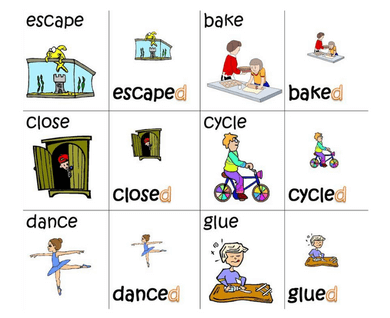Mastering the Past: Your Guide to the Preterite Tense in Spanish
Remember that time you finally finished that Netflix series everyone was raving about? Or that amazing concert you went to last month? In Spanish, to describe those finished actions in the past, you'd use a special tense – the preterite tense, sometimes referred to as the "pasado simple de drop." Think of it as your trusty sidekick for narrating all those exciting events and milestones in your life, all while sounding like a true Spaniard.
Now, you might be thinking, "Another tense? Is this really necessary?" Trust us, it is! Mastering the preterite tense is like unlocking a secret level in your Spanish-speaking journey. It allows you to paint vivid pictures with your words, bringing your past experiences to life with accuracy and flair.
The Spanish preterite tense might seem a little intimidating at first, but fear not! It's actually quite logical and – dare we say it – even fun to use once you get the hang of it. We'll walk you through everything you need to know, from recognizing those telltale "-ed" endings in English to effortlessly conjugating verbs like a pro.
Ready to ditch those clunky present perfect phrases and impress your Spanish-speaking friends with your newfound mastery of the past? Let's dive into the exciting world of the preterite tense!
Imagine this: you're in a bustling tapas bar in Madrid, sharing stories of your travels with newfound friends. You want to tell them about that incredible flamenco show you saw the night before. This is where the preterite tense swoops in to save the day. You could simply say, "I saw a flamenco show," but where's the fun in that? With the preterite, you can dramatically declare, "¡Vi un espectáculo de flamenco!" Suddenly, your story becomes much more vivid and engaging. You've transported your listeners to that magical night with just one perfectly conjugated verb.
While we won't be diving deep into the technical grammatical rules here (we'll save that for your Spanish textbook!), we'll give you a taste of how the preterite works its magic. The preterite tense is all about completed actions, events that have a clear ending in the past. Think of it as a snapshot of a moment frozen in time. You went, you saw, you conquered that plate of paella – all done and dusted!
The beauty of the preterite lies in its simplicity. Unlike its more complex cousin, the imperfect tense, the preterite doesn't dwell on ongoing actions or habits in the past. It deals with the here and now, or rather, the "then and done." This makes it a fantastic tool for storytelling, news reporting, and any situation where you need to convey a sequence of events clearly and concisely.
Now that you're acquainted with the "what" and the "why" of the preterite tense, let's move on to the fun part – putting it into action! Remember, practice makes perfect. So grab your Spanish textbook, find a language exchange partner, and get ready to conquer the past like the Spanish grammar whiz you were born to be. ¡Buena suerte!
Unlocking style colors that pop with blue colores q combinan con azul
Week 16 nfl matchups conquer your fantasy football playoffs
The curious case of cute cat pfps a whimsical exploration














